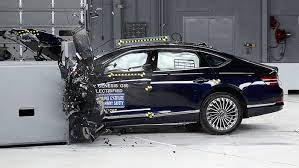In recent years, electric cars have gained significant popularity as environmentally-friendly alternatives to traditional gasoline-powered vehicles. However, one crucial question that often arises in discussions about electric vehicles is, “Are Electric Cars Safe In A Crash?” This article will delve into the safety aspects of electric cars, exploring their design, features, and performance in the event of a collision.
Are Electric Cars Safe In A Crash?
Electric vehicles (EVs) have come a long way in terms of safety, and automakers have invested heavily in ensuring that they are on par with or even exceed the safety standards of conventional cars. Here are some key aspects to consider when it comes to the safety of electric cars in a crash:
1. Advanced Safety Features
Modern electric cars are equipped with advanced safety features that are designed to mitigate the impact of a collision. These features include:
- Crash Avoidance Systems: Electric cars often come with advanced driver-assistance systems that can help avoid accidents altogether. These systems include features such as lane-keeping assist, adaptive cruise control, and emergency braking.
- Structural Design: Electric vehicles have a unique design due to the placement of the battery pack. The battery is often located on the vehicle’s floor, which can provide a lower center of gravity and enhanced structural integrity. This design can make EVs more stable during a crash.
- Collision Avoidance: Some electric cars are equipped with collision avoidance technology that can sense an impending collision and take action to prevent or minimize the impact. This can include autonomous emergency braking and pedestrian detection systems.
2. Battery Safety
One of the concerns with electric cars is the safety of the lithium-ion batteries in the event of a crash. While rare, high-speed accidents can potentially lead to battery fires. Automakers have addressed this issue through various means:
- Battery Protection: Electric cars are designed with reinforced battery enclosures and cooling systems to protect the battery pack in the event of a collision.
- Emergency Shutdown: Many EVs have systems in place to automatically disconnect the battery in a crash to prevent electrical hazards.
- First Responder Training: First responders are trained on how to handle electric vehicle accidents, including disconnecting the battery to ensure safety.
Read Too:
3. Crash Test Ratings
Electric cars undergo rigorous crash tests to evaluate their safety performance. These tests assess how well a vehicle protects occupants in various crash scenarios. The results are typically published by organizations like the National Highway Traffic Safety Administration (NHTSA) and the Insurance Institute for Highway Safety (IIHS).
4. Regulated Safety Standards
Electric cars, like traditional vehicles, must meet strict safety standards set by government agencies. These regulations cover various aspects of vehicle safety, including occupant protection, pedestrian safety, and crashworthiness.
5. Maintenance and Repairs
Regular maintenance and prompt repairs are essential for ensuring the ongoing safety of an electric vehicle. This includes addressing any damage or wear and tear that may affect the vehicle’s safety systems.
It’s important to note that while electric cars are generally safe in crashes, the safety of any vehicle depends on several factors, including the specific make and model, the condition of the vehicle, and the behavior of the driver.
In conclusion, electric cars have made significant strides in safety and are designed to provide protection in the event of a crash. Advanced safety features, improved battery safety measures, rigorous crash tests, compliance with safety standards, and regular maintenance all contribute to making electric cars safe on the road.
As electric vehicle technology continues to evolve, we can expect even more innovations and enhancements to further improve the safety of these vehicles. So, to answer the question, “Are Electric Cars Safe In A Crash?” – yes, they are indeed safe, and in many cases, they offer a level of safety that rivals or surpasses traditional gasoline-powered vehicles.
In your search for a safe and environmentally friendly vehicle, electric cars are a viable and responsible choice. With ongoing advancements in safety technology, they are becoming an increasingly secure option on the road.
